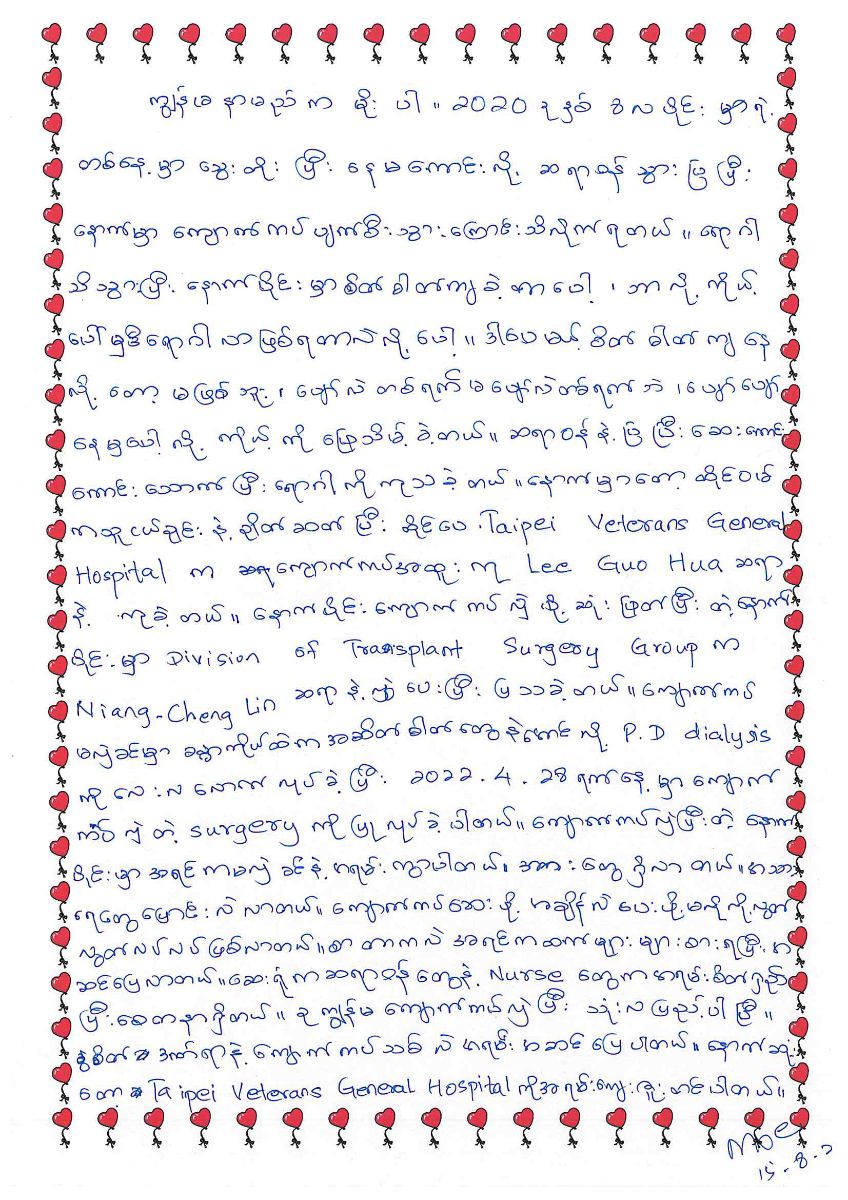▲English CC (Closed Caption)
MOE is a 26-year-old woman from Myanmar. MOE is an optimistic and energetic Myanmar woman who had been on peritoneal dialysis from 2021 due to early-onset glomerulonephritis, which led to kidney failure. This has affected her life, including some of her daily habits. Exercise is also restricted. Her family was saddened by the pain of her kidney dialysis and decided to seek a kidney transplant. After searching on the Internet, MOE decided to come to Taiwan for preoperative evaluation and kidney transplantation surgery. During her visit, she found that the survival rate of kidney transplant patients at the Taipei Veterans General Hospital, especially the 10-year survival rate, was higher than that of other hospitals in northern Taiwan. In addition, the donor’s surgery is performed by laparoscopic surgery. In this minimally invasive surgery, the wound is reduced and the recovery time is shortened, which also helps the donor’s from postoperative wound pain and postoperative recovery. Finally, she and her living donor, her uncle, decided to have a kidney transplant in our hospital.
At that time, under the severe epidemic of Covid-19, her uncle flew from Myanmar to Taiwan on March 18, 2022 with the assistance from our international medical implant specialist. After the isolation, all the preoperative examinations were completed, and a kidney was transplanted to MOE on April 28. MOE's operation went well, and her renal function recovered well after the operation. She also started her new life after the transplant, and she was able to resume some sports she used to enjoy, including playing a few rounds of golf in Taiwan.
For patients with late-stage kidney disease, kidney transplantation is the best treatment option. Particularly for young patients, transplantation can free them from the pain of dialysis and the limitations of life, and thus improving their health status. Therefore, we can encourage these young patients to actively seek evaluation and treatment for kidney transplantation if their life, lifestyle, work, or health status is affected.

最後更新: